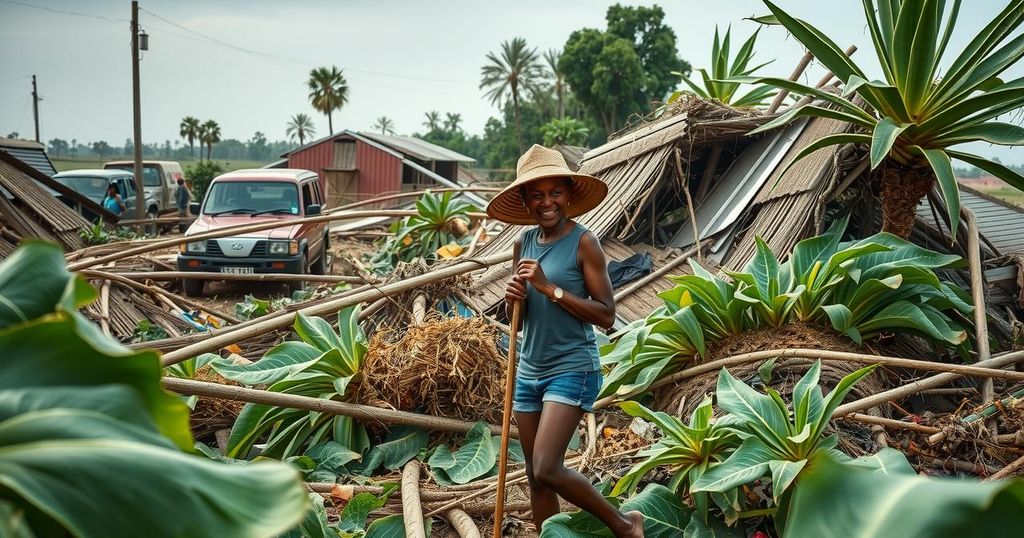Hurricane Helene’s aftermath has left farmers in Georgia and surrounding Southern states with devastating losses exceeding $10 billion. The storm caused significant destruction to crops right before harvest, particularly affecting cotton and poultry production. Recovery efforts are ongoing, with farmers like Chris Hopkins and Jeffrey Pridgen highlighting the emotional and financial challenges faced. State and federal assistance is being sought to support rebuilding efforts in the wake of the disaster.
Farmers in Georgia and surrounding Southern states continue to deal with the aftermath of Hurricane Helene, which wreaked havoc on their crops and livelihoods. The storm, which made landfall in Florida on September 26 as a Category 4 hurricane, resulted in significant destruction across agricultural sectors, with losses exceeding $10 billion across the affected states. Chris Hopkins, a farmer in Toombs County, expressed the emotional turmoil associated with recovering from the storm, stating, “I have wrestled with lots of emotions the past two months.”
Damage assessments reveal staggering losses, with Georgia farmers alone facing devastation worth at least $5.5 billion. Many farmers struggled to salvage their crops during the fall harvest, as Helene arrived at a critical time for cotton, pecan, and vegetable production. Cotton grower Timothy Coolong remarked on the extensive toll of the storm, stating, “This may be just too much for some folks.” Only a portion of farmers’ yields, such as Hopkins, who lost about half of his cotton crop, could be salvaged, leaving many at risk of financial ruin.
In November, the State of Georgia allocated $100 million to assist farmers in recovery efforts, despite constitutional constraints on direct disaster aid. Farmers like Jeffrey Pridgen seek urgent assistance to rebuild poultry houses destroyed by the storm, which significantly disrupted local chicken production. The destruction of poultry houses has led to only partial operations at key processing facilities, with President of the Georgia Poultry Federation, Mike Giles, outlining the extensive rebuilding required.
While consumer prices are expected to remain stable due to alternative supply sources, the pecan market could experience fluctuations, as Georgia accounts for a substantial proportion of national production. As an accumulating toll from the storm reflects, Georgia cotton farmers experienced losses valued at $560 million, with many still recovering from Hurricane Michael in 2018. Taylor Sills of the Georgia Cotton Commission encapsulated the essential sentiment, noting, “There are people who lost everything and there are people who didn’t. But everybody lost something.”
The article focuses on the long-term impacts of Hurricane Helene, which struck the Southeastern United States in September 2018, causing widespread damage to crops across several states, particularly Georgia. This hurricane was significant due to its high wind speeds and extensive rainfall, impacting various agricultural sectors, including cotton and poultry farming. The subsequent economic and emotional toll on farmers is explored, emphasizing the challenges they face in recovery and rebuilding efforts following such catastrophic events.
In conclusion, Hurricane Helene’s devastation has left a profound impact on the agricultural community across the Southeastern United States, particularly in Georgia. As farmers confront staggering economic losses and emotional distress, the need for immediate assistance and long-term support becomes critical in aiding their recovery. Although some sectors may experience market stability, the losses underscore the vulnerability of agriculture to natural disasters, prompting a collective need for resilience and support.
Original Source: www.agrinews-pubs.com






